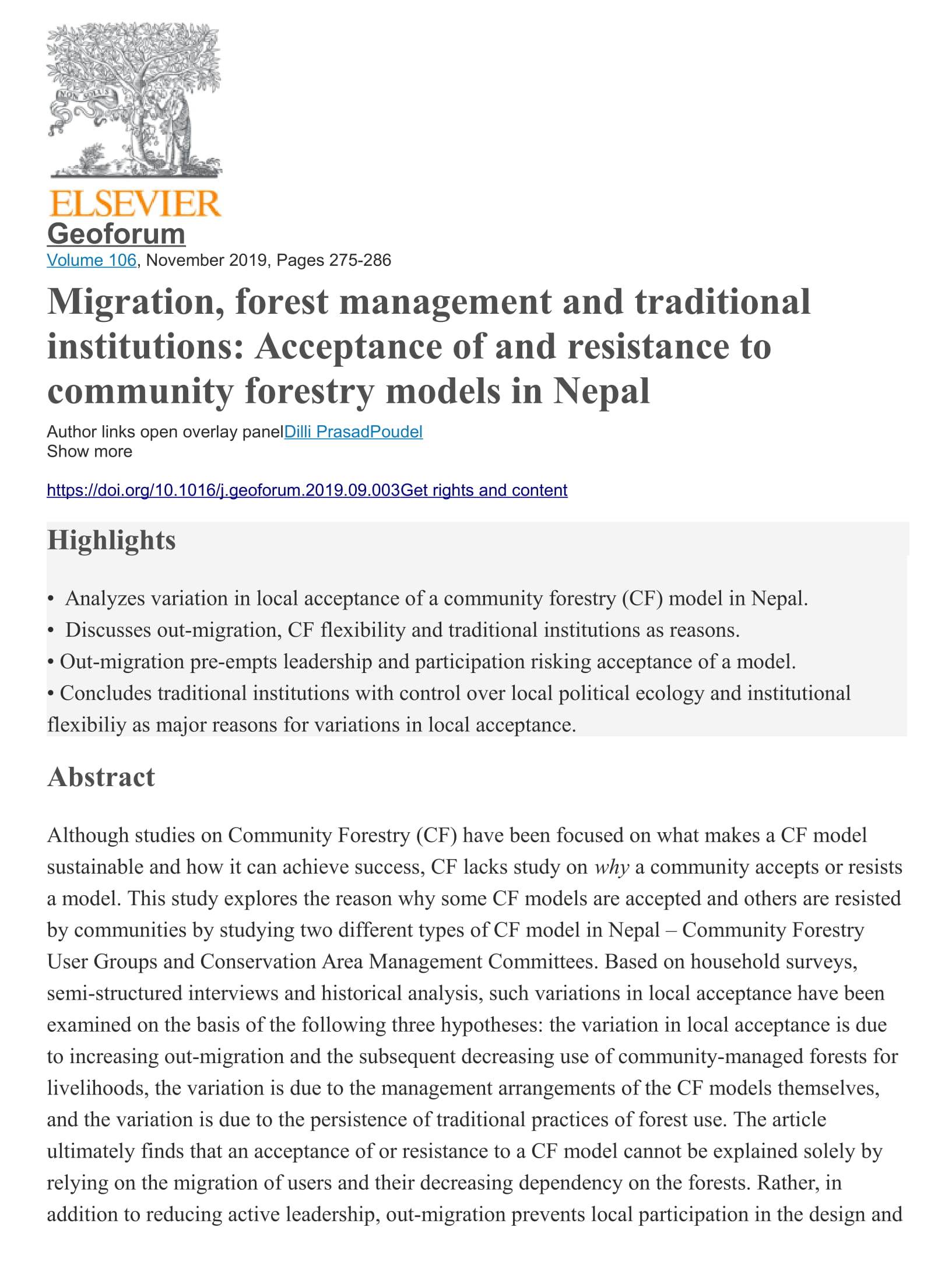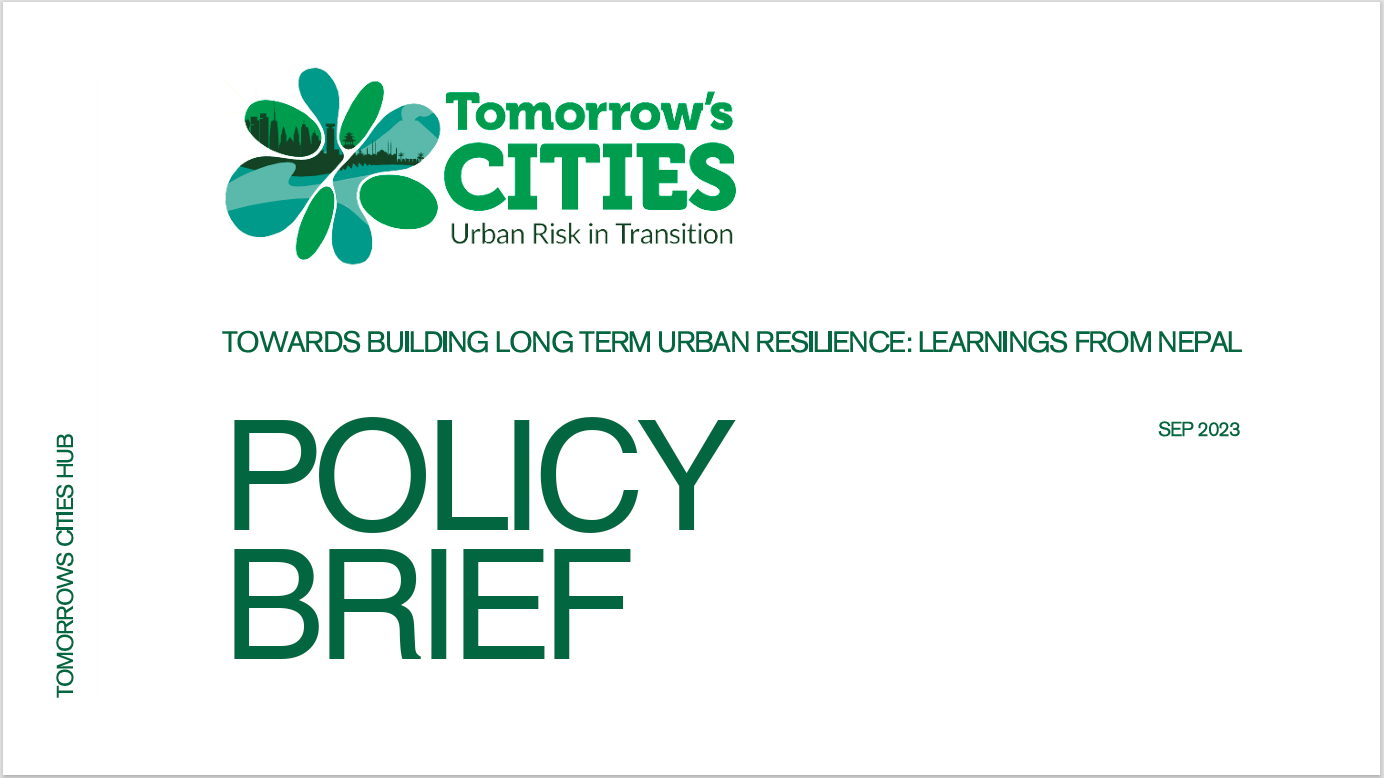 Published online: November 2019
Published online: November 2019
Authors : Dilli Prasad Poudel
https://doi.org/10.1016/j.geoforum.2019.09.003
Although studies on Community Forestry (CF) have been focused on what makes a CF model sustainable and how it can achieve success, CF lacks study on why a community accepts or resists a model. This study explores the reason why some CF models are accepted and others are resisted by communities by studying two different types of CF model in Nepal – Community Forestry User Groups and Conservation Area Management Committees. Based on household surveys, semi-structured interviews and historical analysis, such variations in local acceptance have been examined on the basis of the following three hypotheses: the variation in local acceptance is due to increasing out-migration and the subsequent decreasing use of community-managed forests for livelihoods, the variation is due to the management arrangements of the CF models themselves, and the variation is due to the persistence of traditional practices of forest use. The article ultimately finds that an acceptance of or resistance to a CF model cannot be explained solely by relying on the migration of users and their decreasing dependency on the forests. Rather, in addition to reducing active leadership, out-migration prevents local participation in the design and implementation of new forestry institutions, and therefore makes an institution vulnerable and increases the risk of accepting a CF model. Moreover, a CF model that has wider institutional flexibility in terms of rules and rights can succeed in incorporating villagers’ priorities, and can thus enjoy enhanced local acceptance. Finally, the persistence of traditional institutions with the ability to impose sanctions on forest uses can resist to a formally designed CF model. As the government of Nepal is revising forestry legislation in the context of climate change and REDD+, the findings may provide knowledge for the sustainability of emerging forestry governance practices.







